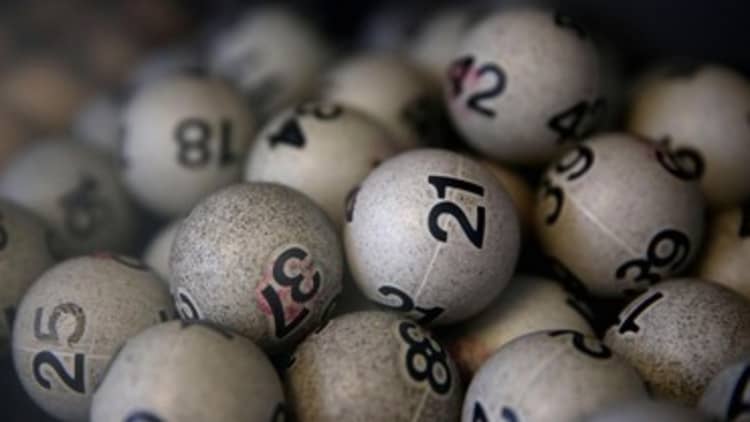


Joining the office Powerball pool isn't always a smart gamble.
Pooling resources with a few co-workers can be an enticing prospect, especially now that the jackpot has hit a world-record-setting $1.5 billion.
Generally, however, it's better to buy your own tickets, said Jason Kurland, a partner with Certilman Balin Adler & Hyman in East Meadow, New York, who is known as the Lottery Lawyer.
"I strongly dislike Powerball office lottery pools," he said. The Multi-State Lottery Association puts the chance of walking away with the grand prize at one in 292.2 million for a single ticket, and buying a few more doesn't move the needle much.
"If you're going to take those crazy odds, you're better off doing it on your own so you don't have to split it," Kurland said.
With winner pools, the process of claiming and splitting the money can get complicated. For starters, it's harder to do what experts advise in big lottery wins: Stay anonymous while you figure out a plan for the money.
"There's no reason to call attention to it early," said Kurland. Ideally, you'd have time to hire experts, like a lawyer, financial advisor and accountant, to figure out the best way to claim and manage that jackpot before the media crush brings attention and outstretched hands to your doorstep.
But sharing the prize means more people know at the outset. Someone is likely to spill the beans.
It could take longer to get your money, too, with each participant consulting his or her own team of experts.
"The last thing you want is 20 lawyers involved in anything," said Kurland. Some states have limitations on how many checks can be cut, meaning a larger group could need to settle on a more complex solution, like forming a trust.
Then there are the tax consequences. Taxes on lottery winnings can vary by where you live and where you bought the ticket, so commuters who live in one state and work in another could lose a bigger percentage of their winnings to taxes.
If one person or a few from a large group claim the prize on behalf of everyone, they take on the full income-tax burden. Money shared after claiming the prize would be considered a gift, Melissa Labant, director of tax advocacy for the American Institute of Certified Public Accountants, told CNBC Monday. With a prize this large, the gift giver is likely to incur gift tax, and have estate tax consequences as a result.
Despite those downsides, handing over a few bucks for the office Powerball pool is cheap peace of mind. After all, who wants to be the only person at the office on Thursday while co-workers are out rolling around in piles of money?
So if you're joining a pool, take steps to make sure it's well executed. There have been a number of lawsuits over the years from workers claiming colleagues unjustly cut them out of an office pool's lottery winnings. So formalize the process. "Would you treat a $1.5 billion transaction with a handshake and trust?" said Kurland.
Keep a record of who contributes, and ask each participant to sign an acknowledgement that they've joined the pool. Scan in tickets purchased for the group and send them in an email to the participants with a note along the line of "Here are our numbers, this is the group," said Kurland. Those steps make it clear who's splitting the prize and will head off thorny issues, like whether the winning ticket was part of the pool or one the organizer bought for himself.
Check to make sure your pool doesn't run afoul of office solicitation policies, said Claire Bissot, managing director of CBIZ HR Services. Managers generally see such office pools as a good opportunity for camaraderie, she said, but you could be in for a reprimand if colleagues feel bullied into contribution or wrongly excluded from participating.
That's assuming, of course, that you don't win and still have to show up in the office on Thursday.




